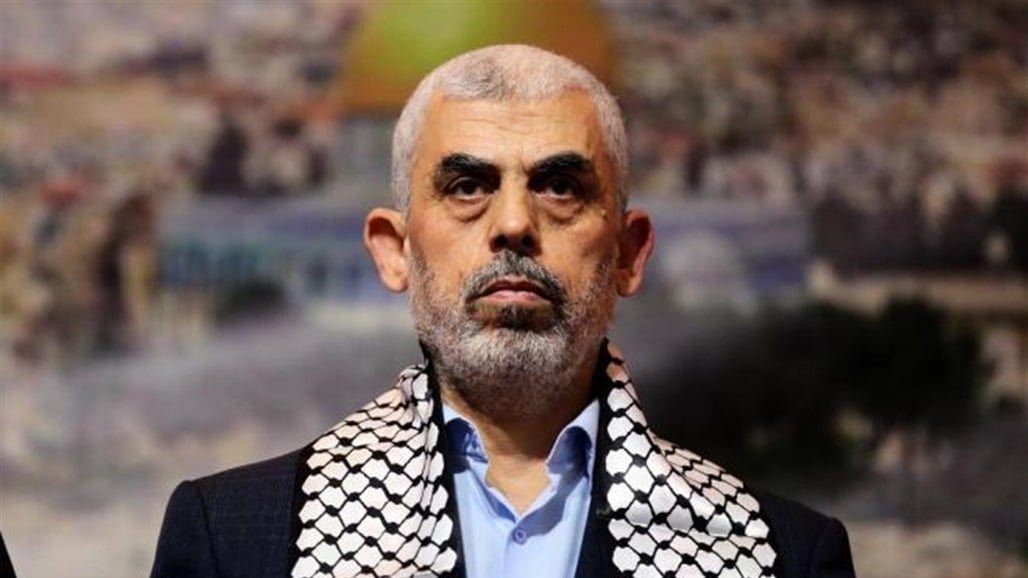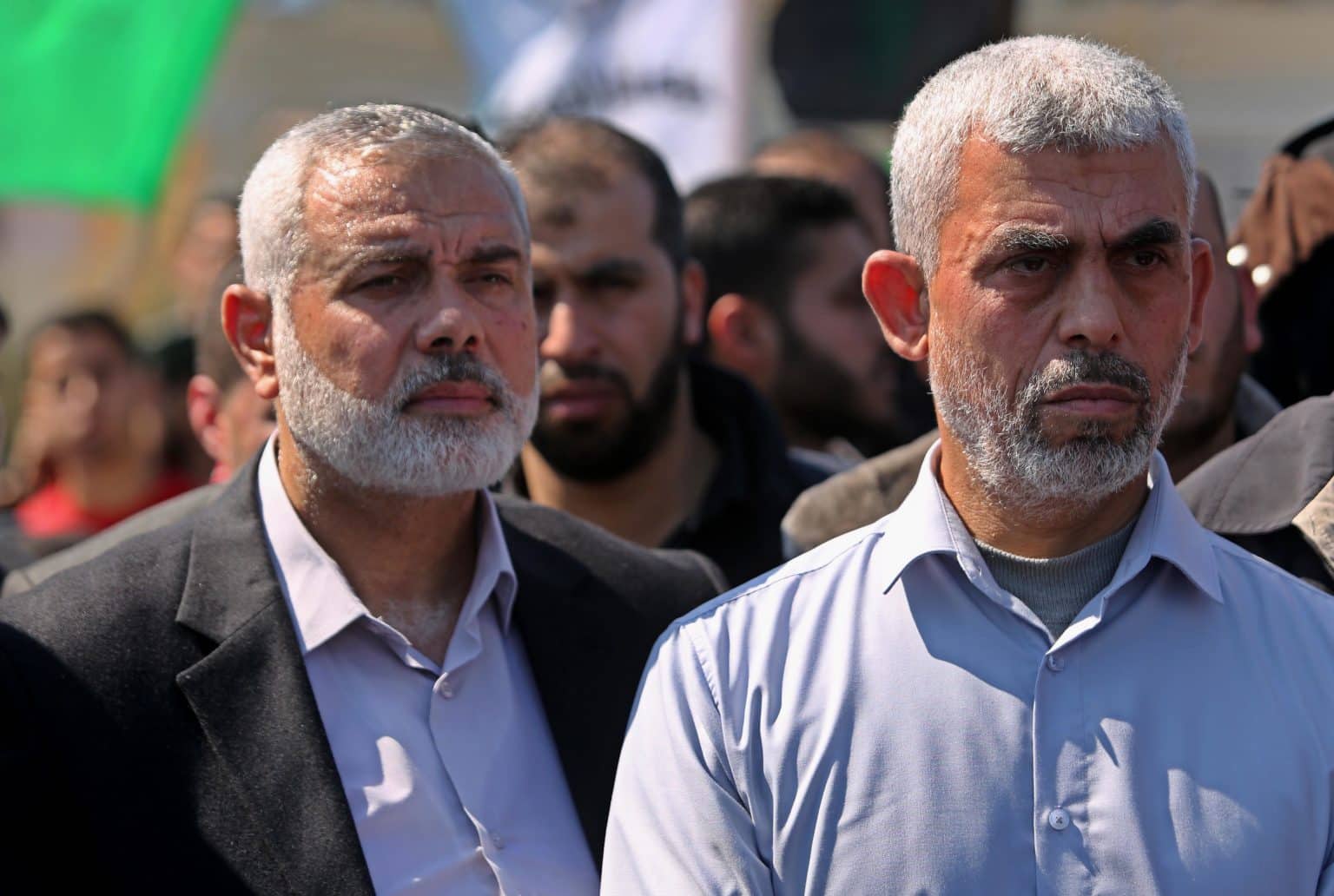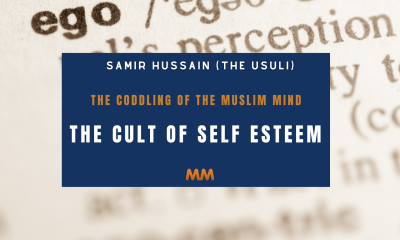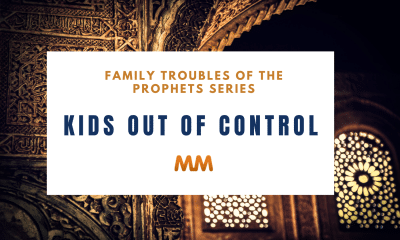#Current Affairs
Israel Kills Yahya Sinwar: Hamas’ Iron Man Exits The Stage
Published
By
Ibrahim Moiz
By Ibrahim Moiz for MuslimMatters
A full year and countless souls into the genocide of Palestine, Israel added to their list of assassinated enemy leaders the prized kill of Yahya Sinwar, Hamas’ leader and essentially Gaza’s ruler for the past seven years. It should come as no surprise that the preeminent Palestinian militant commander went out as he had lived – in a final fierce blaze of defiance, flinging projectiles at the Israeli drone that put an end to a life of hardnosed, uncompromising resistance. The sudden slaying of the Hamas leader came a year into the Israeli genocide that had taken a gigantic hunt for his head as a feeble pretext to exterminate his compatriots by the tens of thousands.
In a movement with no shortage of leaders who have lost their lives to Israeli pursuits, Sinwar’s is perhaps the most fitting and striking end, for he was as tough and hardscrabble a leader as has ever led Hamas. For a year, since he masterminded the brazen raid from besieged Gaza that caught Tel Aviv by surprise, the Israeli government and its mouthpieces have insisted that Sinwar and other Hamas leaders were secretly plundering aid and manipulating Palestinians from the safety of subterranean lairs in order to enrich themselves and inconvenience Israel out of pure spite. The reality was quite different: he was killed at the battlefront, with no real material assets and nothing left to give but a last, lashing flare of resistance. A startling clip captured by the drone that ended his life shows Sinwar in battered combat gear, face wrapped in a scarf, coated in dust, and hauling a rifle; having lost the use of an arm and leg yet using the remaining limb to hurl projectiles at the aerial assassin that brought him the death in combat for which he had long yearned.
Background: The Making of a Hard Man
Keep supporting MuslimMatters for the sake of Allah
Alhamdulillah, we're at over 850 supporters. Help us get to 900 supporters this month. All it takes is a small gift from a reader like you to keep us going, for just $2 / month.
The Prophet (SAW) has taught us the best of deeds are those that done consistently, even if they are small. Click here to support MuslimMatters with a monthly donation of $2 per month. Set it and collect blessings from Allah (swt) for the khayr you're supporting without thinking about it.
Abu Ibrahim Yahya Ibrahim Hasan Sinwar was born in a refugee camp to a family ousted by Israel from Majdal Ascalon. He was raised in the southern Gazan town of Khan Yunus, which was seized by Israel when he was a boy in their blitzkrieg of the summer of 1967. As a boy, Sinwar was friends with another Palestinian who would earn a reputation as a hard man, yet to a very different end: Muhammad Dahlan. While Sinwar drifted into Islamist politics as a student, Dahlan became an activist for -what was then- the premier resistance faction, Fatah.
In the 1980s Palestinian Islamists, who had been politically marginal for decades, began to mobilize: the most successful Islamist movement would become known as Hamas. Sinwar, Salah Shihadeh, and Rawhi Mushtaha were active in a precursor to the movement, an underground militant wing that mounted hit-and-run attacks against the occupation but more notoriously hunted alleged informants. In the late 1980s, when they were swept up and imprisoned by Israel, Sinwar was not yet thirty. Separately his friend Dahlan, too, was jailed, provoking protests in Gaza.
For the next quarter century, Sinwar remained behind bars as the Palestinian resistance grew and changed. There were two major uprisings – roughly dated, in 1987-93 and 2000-05 – where often stone-throwing Palestinians confounded the supposed might of the Israeli occupation in a neat but grimly necessary imitation of David against Goliath. Equally of note was the foundation of a major Islamist group called Hamas, its military wing morphing from the roots planted by Sinwar and his counterparts. Dahlan, meanwhile, was not only released, but – as the United States sponsored a Palestinian vassal to whom it could outsource Israeli security – actually formed a bonhomie with his former captors, rising in Palestinian security to essentially take Gaza as his own fiefdom. Apart from restless ambition, one factor that brought Dahlan closer to the Israelis was the hatred they had both developed for such groups as Hamas.
Sinwar spent his years in prison quite differently. Always reputed as a ruthless man of action, he also wrote a revealing novel whose protagonist, a focused and disciplined fighter named Ibrahim, resists the enemy until his martyrdom. He also set about learning Hebrew, studying various subjects from Jewish history and matters about Israeli security in order to familiarise himself with factors in his opponents’ calculations. He also proved a staunchly recalcitrant prisoner, arranging shows of opposition such as hunger strikes and negotiations for release. But with these displays of activism, the action man spent his period off the field studying and sizing up his enemies.
Though Shihadeh had returned as Hamas’ military commander and was contentiously killed with his family by Israel in 2002, it was not until the autumn of 2011 that Sinwar and Mushtaha were released along with hundreds of other captives in return for a captured Israeli soldier. Mushtaha had married shortly before his imprisonment and his wife, remarkably, stood by him in absentia until his captivity ended; by contrast, Sinwar only married after his release, by which point he was about fifty years of age and had spent half his life behind bars.
No matter; it did not take long for Sinwar to throw himself practically into the business of resistance. Gaza had been under Israeli blockade since 2007 – when Sinwar’s former friend Dahlan had, with American encouragement, tried to sabotage the elected Hamas prime minister Ismail Haniyeh, only for Hamas to strike first and drive him out. Particularly under the rule of the far-right Likud prime minister Benjamin Netanyahu-Mileikowski, Tel Aviv made a point of periodic and bloody salvos, where at least dozens of Palestinians were frequently killed for every Israeli casualty; in the most recent salvo, led by Yoav Gallant in the winter of 2008-09, thirteen hundred Palestinians had been killed for thirteen Israelis. In this skewed battlefield, a seasoned fighter with knowledge of the enemy was always going to bring value, and Sinwar eased back into the Hamas structure. He worked closely with its shadow military commander Muhammad Daif, and his own brother Muhammad was promoted to lead its front at their hometown of Khan Yunus.

Yahya Sinwar (right) and Ismail Haniyeh (left) attending the funeral of Hamas official Mazen Foqaha in Gaza City on March 25, 2017. (Photo: Ashraf Amra/APA Images)
Palestinian performance in subsequent rounds of combat, particularly the summer-long battle of 2014, showed considerable improvement. In spite of a major American-supplied missile shield, the so-called Iron Dome, Israel was increasingly leery of Palestinian resistance and made much, with no small amount of exaggeration, of its Iranian links. In 2017 Sinwar replaced Haniyeh who became, in essence, the group’s emir abroad.
In contrast to Haniyeh, very much a diplomat and consensus-builder, Sinwar was a man of action, and his views on the necessity of armed resistance could only have hardened upon seeing the brutal Israeli suppression of a non-violent Palestinian march – styled the March of Return – in 2018. In 2021, when the Israeli state-backed violent incursions into the Aqsa Mosque at Jerusalem, Sinwar led Gazan forces in a major battle against the occupation. Paradoxically, however, Netanyahu-Mileikowski was convinced that he could coopt Hamas, and in 2022 instead focused on targeting Gaza’s secondary militant group, Jihad, led in the region by Khaled Batsh.
This was a strange distinction given that Sinwar’s own militant approach scarcely differed in practice from that of Jihad. The early 2020s had seen Netanyahu-Mileikowski and the broader Israeli state increasingly brazen, confident in their American-brokered rapprochements with Arab monarchies – cynically nicknamed after the Prophet Abraham, the parties to these accords bore a far greater resemblance to the tyrants Nimrod and Herod than their prophetic ancestor. 2023, for instance, had seen major violence with apparent impunity against Palestinians.
And so in October 2023 the Palestinian militants in Gaza, with Sinwar and Daif at the helm, mounted what was surely the most audacious military initiative against Israel in at least fifty years. In a major, bloody break-out raid that seemed to totally capsize Israeli intelligence, Palestinian militants and citizens alike broke out of besieged Gaza in a hostage hunt. When Israel’s military recovered enough to lash back – with brute force, reflecting Tel Aviv’s tradition of trying to blow away attackers and compatriots alike rather than let the latter be held as leverage – the scene became a bloodbath. Some fourteen hundred people were killed even as the Palestinian raiders captured large numbers of Israeli hostages.
The rest of the story is well-known. Israel, with blatant opportunism and dishonesty, framed the raid as a genocidal anti-Semitic pogrom, and with the unquestioning support of most institutions in Europe and North America embarked on a savage killing spree through Gaza – led by Netanyahu-Mileikowski and, again, the misleadingly named Gallant, now serving as defence minister. For the flailing Israeli cabinet, such an open season on Palestinians was a way of recovering a rabidly ethnonationalist base by opening up Gaza for settlement after expelling its native population. For their part, the Palestinian insurgents fought hard and well, but a pointedly savage assault, which racked up and normalized countless massacres by the bloody bushel, has killed well over a hundred thousand Palestinians, the vast majority of them civilians.
Death from the Frontlines
In attempting to widen its war, Tel Aviv has killed a large number of Palestinian leaders: Hamas lost Haniyeh, second-in-command Saleh Arouri, military commander Marwan Issa, and many ministers and field commanders, while to the north Hezbollah lost a large number of its senior brass, including its emir Hassan Nasrullah as Israel lurched into Lebanon. But the prize catch, surely, is Sinwar, a man who has become vilified by Israel and its allies more pointedly than any other. In a typical screed meant to distract from its abuses, Israel long alleged that the Hamas emir was hiding underground in unaccounted wealth and letting his followers perish on his account.
When the end finally came, the truth was far simpler: Sinwar, like Hamas leaders at large, had led from the front, and left behind little by way of material possessions. Israel and its cohorts, whose propaganda project a patently unserious game-style worldview where wars end when their villain of choice is eliminated, will no doubt crow over this as an unprecedented success. Such gloating, characteristically, ignores the fact that their own chronic, now blatantly genocidal, abuse has helped provoke and ingrain resistance to an extent that no single militant leader could have ever imagined. For Sinwar, a soldier who lived and expected to perish by the sword, such an end could hardly have been more welcome.
Related:
– Ismail Haniyeh Assassinated By Israel: A Life Dedicated To The Palestinian Cause
Keep supporting MuslimMatters for the sake of Allah
Alhamdulillah, we're at over 850 supporters. Help us get to 900 supporters this month. All it takes is a small gift from a reader like you to keep us going, for just $2 / month.
The Prophet (SAW) has taught us the best of deeds are those that done consistently, even if they are small. Click here to support MuslimMatters with a monthly donation of $2 per month. Set it and collect blessings from Allah (swt) for the khayr you're supporting without thinking about it.
Ibrahim Moiz is a student of international relations and history. He received his undergraduate degree at the University of Toronto where he also conducted research on conflict in Afghanistan and Pakistan. He has written for both academia and media on politics and political actors in the Muslim world.


The Muslim Bookstagram Awards 2024 Winners

Getting to Know A Potential Husband/Wife? 3 Questions To Ask Yourself First.

Study Classical Texts the Traditional Way | Session 15

Study Classical Texts the Traditional Way | Session 14

The Fiqh Of Vaginal Discharge: Pure or Impure?

The Coddling Of The Western Muslim Mind: [Part 1] The Cult Of Self-Esteem

Family Troubles Of The Prophets: A MuslimMatters Series – [Part II] My Kids Are Out Of Control

The Coddling Of The Western Muslim Mind: [Part II] The Islam Of Emotionalism

Study Classical Texts the Traditional Way | Session 9

I’ve Converted, And It’s Christmas…

Study Classical Texts The Traditional Way [Session 1] | Sh. Yaser Birjas

Sami Hamdi: “Muslims Must Abandon Harris” | Transcript and Summary

IOK Ramadan: The Importance of Spiritual Purification | Keys To The Divine Compass [Ep30]

IOK Ramadan: The Power of Prayer | Keys To The Divine Compass [Ep29]

IOK Ramadan: The Weight of the Qur’an | Keys To The Divine Compass [Ep28]
Trending
-
#Islam1 month ago
[Podcast] Navigating Christmas: Advice to Converts, from Converts | Hazel Gomez & Eman Manigat
-
#Life4 weeks ago
The Coddling Of The Western Muslim Mind: [Part 1] The Cult Of Self-Esteem
-
#Islam4 weeks ago
Family Troubles Of The Prophets: A MuslimMatters Series – [Part II] My Kids Are Out Of Control
-
#Current Affairs1 month ago
Addressing Abuse Amongst Muslims: A Community Call-In & Leadership Directives | The Female Scholars Network









Hafoiz
October 29, 2024 at 6:11 PM
Remarkable Journey